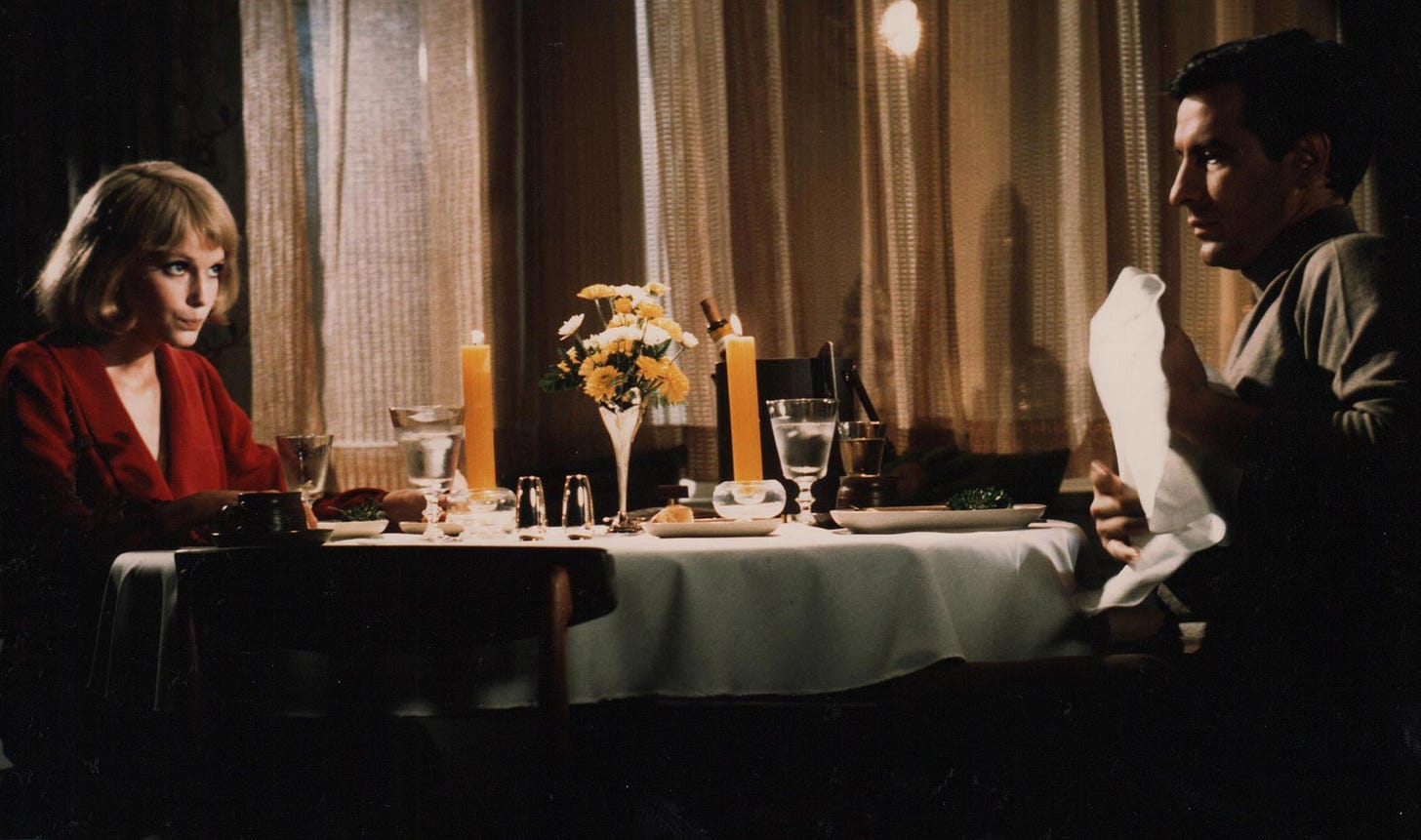The 1968 classic Rosemary’s Baby works as psychological thriller, satanic horror, and social satire all at once. Closely adapted from Ira Levin’s novel of the same name, Roman Polanski’s film tells the story of Rosemary (Mia Farrow), who becomes increasingly convinced that her aspiring actor husband, Guy (John Cassavetes), has made a horrible deal with maybe the literal devil to advance his career in exchange for their unborn child. Its plot, its supernatural implications, and its imagery are all horrific enough, but what has been the subject of much of the enduring decades of discourse around Rosemary’s Baby is the horror that can be found simply in motherhood, in family you can’t trust, in a community that is lying to you, and in the institutions that will do nothing to protect you.
These ideas are, of course, all over the horror since Rosemary and in ways that are especially prevalent in the films 2024. It’s difficult to look at The First Omen, Apartment 7A, Immaculate, or even Longlegs without seeing the long shadow of Rosemary’s Baby, but also as manifestations of particularly palpable fears of a world where women’s bodily autonomy is under more governmental scrutiny following the reversal of Roe v. Wade in 2022. In Dobbs v. Jackson Women's Health Organization, the Supreme Court ended nearly 50 years of federally protected abortion rights in the United States, establishing what critic Vern calls the post-Roe world.
He meant Roe v. Wade, but we saw another meaning in there, “Roe” being what Guy often calls Rosemary in Rosemary’s Baby. And we’re in a post-Rosemary world, too. One shaped, in some sense, by it. So, we’re going to do a two part series looking at the world Roe/Roe built and the way post-Roe horror might take us into the future. In this episode, we hear from Eleanor Johnson, professor at Columbia University, author of the forthcoming book Scream With Me on 1970s horror films, and writer of the Public Books article “Guy Horror: Rosemary’s Baby and Coercive Control.” Then, later in the show, Vern describes his conception of the trends in post-Roe horror, which he noticed in writing about the sometimes-bizarre overlaps between Immaculate and The First Omen.
Keep the conversation going. Follow The Entertainment on Facebook, Instagram, or Substack and let us know what you think. Subscribe on your favorite podcast app and we’d love it if you gave us a review. The Entertainment is a production of KIOS 91.5 FM Omaha Public Radio. It is produced and edited by Courtney Bierman. Our artwork was created by Topher Booth.














Share this post